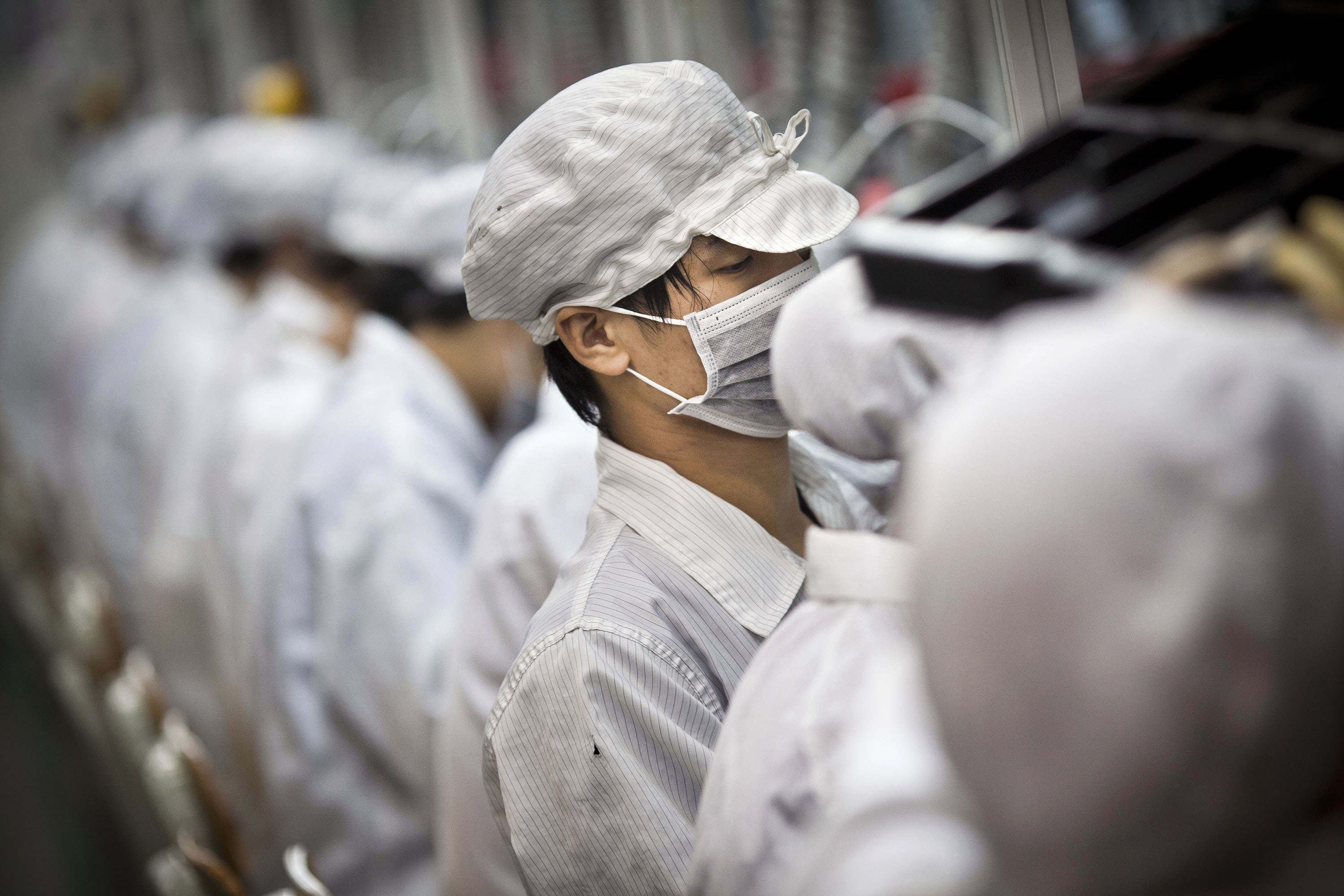Report: Your Gadgets Are Made by Re-Education Camp Prisoners in China

Credit to Author: Matthew Gault| Date: Mon, 02 Mar 2020 19:43:23 +0000
Thousands of forced laborers from the oppressed Uyghur minority are working in factories across China and building electronics for Apple, Samsung, Nintendo, Microsoft and others, according to a new report from the Australian Strategic Policy Institute (ASPI), an independent think-tank.
The report conservatively estimates that around 80,000 people, mostly Uyghurs—a muslim ethnic minority in western China that has been subject to opression from Beijing—were forcibly moved from Xinjiang province to work in factories between 2017 and 2019.
“Uyghurs are working in factories that are in the supply chains of at least 83 well-known global brands in the technology, clothing and automotive sectors, including Apple, BMW, Gap, Huawei, Nike, Samsung, Sony and Volkswagen,” the report said.
Uyghurs have lived in brutal conditions in China for years. The almost 12 million strong population lives mostly in China’s Xinjiang region where, for the past few years, the government has rounded them up and placed them in “re-education camps” where they’re not allowed to practice their religion and drilled on Chinese Communist Party ideology. The goal, according to leaked documents, is the transformation of Uyghurs into loyal citizens of the state.
Forced labor in other provinces is, according to ASPI’s report, a new part of that transformative process. The ASPI used a combinatination of interviews, satellite footage, social media posts, local newspaper reports, and other publicly available information to document the transfer of people from Xinjiang to factories across China.
In just one of the report’s examples, Beijing transfered 1,200 Uyghur laborers from detention camps in Xinjiang to a factory run by a Chinese firm called O-Film in 2017. Local press reported on the influx of workers. “The workers were expected to ‘gradually alter their ideology’ and turn into ‘modern, capable youth’ who ‘understand the Party’s blessing, feel gratitude toward the Party, and contribute to stability,’ a local Xinjiang newspaper wrote,” said the report.
O-Film manufactures pieces of the camera for Apple’s iPhone along with other products for Samsung, Dell, Microsoft, and Amazon. “Apple is dedicated to ensuring that everyone in our supply chain is treated with the dignity and respect they deserve,” Apple spokesman Josh Rosenstock told The Washington Post in response to the ASPI report. “We have not seen this report but we work closely with all our suppliers to ensure our high standards are upheld.”
“Microsoft is committed to responsible and ethical sourcing," a Microsoft spokesperson said. "We take this responsibility very seriously and take significant steps to enforce our policies and code of conduct in support of human rights, labor, health and safety, environmental protection, and business ethics through our assurance program. All forms of forced labor are specifically banned by our Supplier Code of Conduct. We are investigating the claims and will take appropriate action if breaches of our code of conduct exist.”
Conditions for Uyghurs working across China are terrible. According to The Washington Post’s reporting—which focused on a shoe factory supplying Nike in Laixi, China——after their shifts, workers have a certain amount of freedom of movement but they’re constantly monitored by security officers and camera systems using facial recognition. They are not allowed to return home to Xinjiang.
According to The Washington Post, in the shoe factory, watchtowers with cameras walls topped with barbed wire. The Uyghurs often don’t speak Mandarin and are physically separated from their fellow workers. The goal, according to posters on the wall and party officials, is to integrate the Uyghurs into Chinese society.
“For every batch [of workers] that is trained, a batch of employment will be arranged and a batch will be transferred. Those employed need to receive thorough ideological education and remain in their jobs,” said a Chinese government report quoted in ASPI’s report.
“We can walk around, but we can’t go back [to Xinjiang] on our own,” one Uyghur woman working in the Laxi shoe factory told The Washington Post.
Nintendo and Sony did not immediately respond to Motherboard’s request for comment.
Update: This article has been updates with comment from Microsoft.
This article originally appeared on VICE US.